| Columns Retired Columns & Blogs |
I apologize in advance if I missed his mention, did Joe Morello make the list?
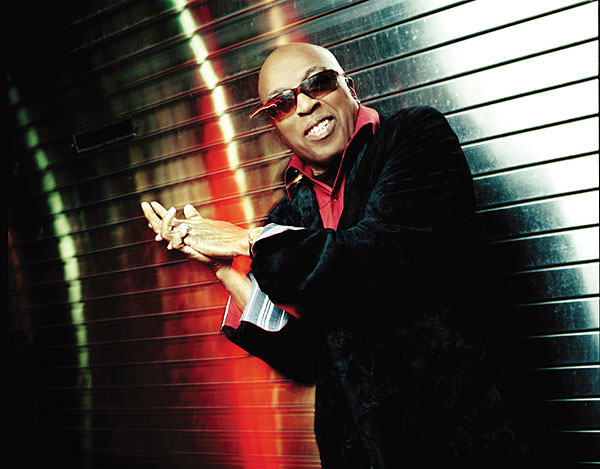
Roy Haynes was described by Thelonious Monk as "an eight ball right in the side pocket." Haynes's inventive drumming can be traced back to New York's fabled Swing Street; he played with everyone, from Charlie Parker and Miles Davis to John Coltrane and Dizzy Gillespie. Witty, startling, and revolutionary, Haynes's drumming commentary remains brilliant as he nears his 97th birthday.
Billy Higgins had the happiest cymbal beat ever. Higgins graced dozens of Blue Note albums and cut groundbreaking recordings with Ornette Coleman including Something Else!!!! and The Shape of Jazz to Come.
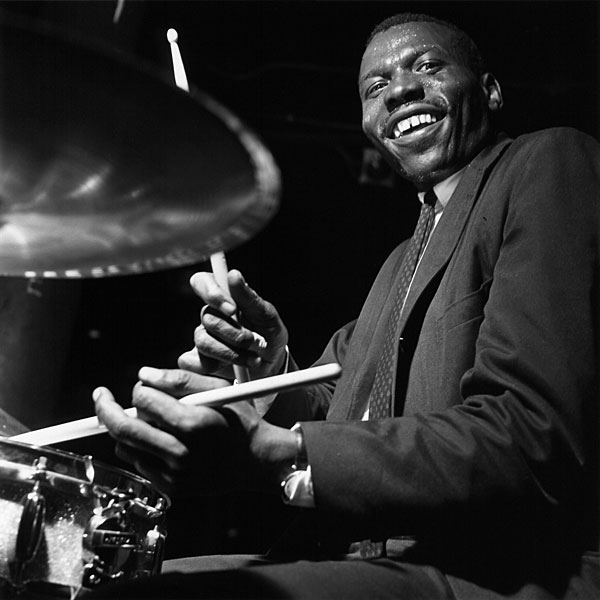
Elvin Jones's style evolved and became more refined as he worked with Coltrane, but he was always himself, just not quite as obviously. If you listen to Tommy Flanagan's Overseas (1957), Elvin had it all then. It's almost like Elvin and John Coltrane needed each other to launch Elvin's bolder style. That's when he began elongating the triplets and breaking up the time.—Drummond
"Philly Joe" Jones had a fantastic sense of pulse and a beautiful, flowing ride cymbal. Philly Joe's comping was geared toward making the rhythm section swing rather than intertwining with a soloist. His soloing was always grooving and moving forward, super-refined and superslick. Philly Joe had a largely fixed vocabulary, but he always presented it in surprising ways.—Riley
Mel Lewis supported each soloist to help them shine. With the Thad Jones/Mel Lewis Orchestra, Thad wrote music knowing exactly who was going to play it. Perhaps that music is tailored to Mel's way of playing. Mel was very busy in the New York City studios in the '50s and '60s. In the '70s, he started working with the radio bands in Europe such as the WDR Big Band.—Riley
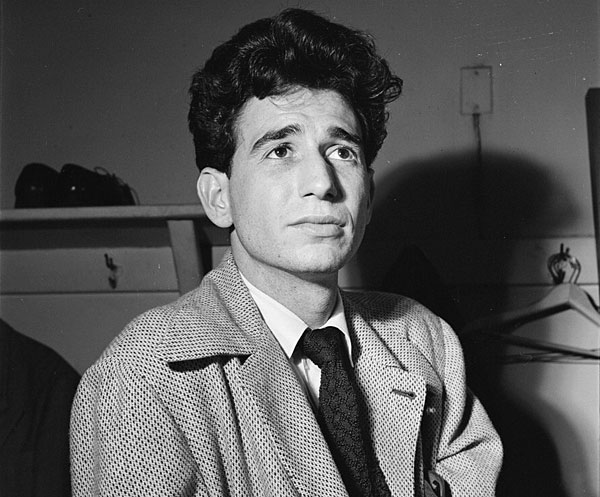
Shelly Manne is known for his At the Blackhawk and The Poll Winners records on Contemporary, but he was also a heavy studio drummer. He was always checking out the new guys, 'cause he had the Manne Hole club and all the cats would come through, including Trane and Miles. You hear Manne opening up on his later records, [and earlier recordings with Ornette Coleman]. A timeless drummer who could play in any style.—Drummond
Paul Motian rose to international fame with pianist Bill Evans's trio on Sunday at the Village Vanguard. He left the trio to play with pianist Paul Bley. He started leading his own influential bands on the ECM and JMT labels in the '70s. His records with tenor saxophonist Joe Lovano and guitarist Bill Frisell, featuring his playful but hard swinging style, are jazz milestones, a unique trio language within itself.
Art Taylor had a great cymbal beat, really swinging and moving forward. Art's time-playing was unique.—Riley
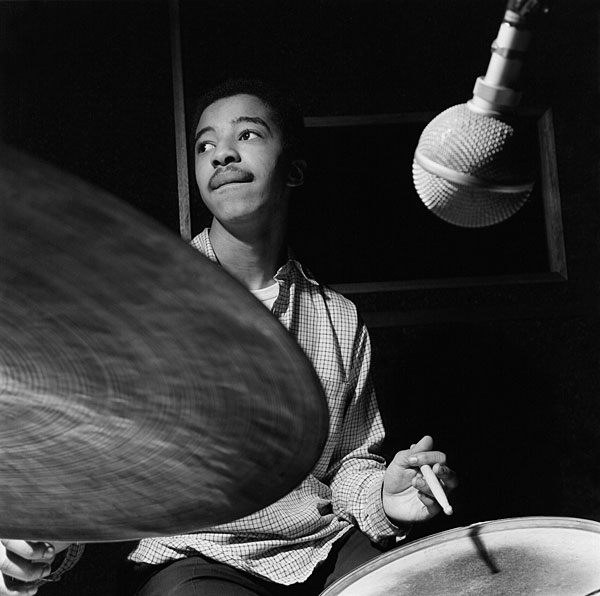
Tony Williams's first two records, Life Time and Spring, swung, but it was open music. He could play exactly like Max Roach, "Philly Joe" Jones, or Art Blakey, but he had the maturity not to copy them. Tony was revolutionary, conceptually and technically. On the Miles Davis records, he played the hi-hat on all beats while feathering his bass drum. After transforming jazz drumming with Miles, Tony founded fusion with Lifetime, then changed drumming again with new tonal colors and bigger drums, as with [jazz supergroup] VSOP on Tempest in the Coliseum.—Drummond
Other important drummers from the '50s and '60s: Joe Chambers, Jimmy Cobb, Andrew Cyrille, Daniel Humair, Pete La Roca, Dannie Richmond, Mickey Roker, and Grady Tate.
1970s–'80s
The great '70s jazz drummers include Peter Erskine, who came to wider attention with Weather Report, and Jon Christensen, practically the house drummer for ECM, who played a linear style that flowed while pointing the music in new directions.
Billy Cobham could read music, had great technique. Billy joined the Mahavishnu Orchestra and became the quintessential jazz-rock fusion drummer. But even when you see clips of him with Horace Silver, Billy's blazing.—Drummond
Jack DeJohnette said his ride cymbal [phrasing] is all Herbie Hancock's Empyrean Isles, which is Tony Williams. His style reflects "Philly Joe" Jones, Elvin Jones, Roy Haynes, and Milford Graves. Jack was one of the founding members of the AACM in Chicago. His first major exposure was with Charles Lloyd. Jack is on Bitches Brew and The Lost Quintet. His albums The DeJohnette Complex, Cosmic Chicken, and Sorcery are excellent. New Rags is a masterpiece.—Drummond
Al Foster grew up in Harlem and was friendly with Art Taylor, with whom he credits his ride cymbal beat that sits right in the middle of the time. Al has a unique way of building with and giving the soloist energy without forcing anything. His drumming is very sensitive and intricate.—Wells
Billy Hart is an inventive drummer who changed his style as jazz changed. Hart worked extensively with Jimmy Smith and Wes Montgomery, moved to New York, where he became part of Herbie Hancock's Mwandishi, and continues to work with great contemporary jazz musicians. A sensitive, swinging drumming style marked by beautiful cymbal colors.
Victor Lewis is about as heavy as it gets in terms of being able to cover all the bases. He's one of the few jazz drummers that can authentically play Brazilian. One of the truly great drummers and musicians.—Drummond
Many people think Lenny White is just a fusion guy, but his biggest albums are Freddie Hubbard's Red Clay and Miles Davis's Bitches Brew. Andrew Hill's Passing Ships was released last year. Lenny made many jazz records.—Drummond
Jeff "Tain" Watts paved the way for a certain kind of drumming: burnout jazz. Very intense, very much post–Miles Davis '60s quintet, but more extroverted and explosive. His records with Wynton Marsalis and his solo records helped spark an interest in jazz for young African American musicians. Jeff was a classical percussion major before he went to Berklee.—Drummond
Other important drummers of the '70s and '80s: Barry Altschul, Eric Gravatt, Bob Moses, Alphonse Mouzon, and Woody "Sonship" Theus.
The 1990s and beyond
Marvin "Smitty" Smith is a virtuosic, versatile drummer who can play in any style. He has a Buddy Rich level of technique. He played with Benny Golson, Dave Holland's band, and the Tonight Show band, and on Steve Coleman's early M-Base records.—Wells
Ralph Peterson Jr. emerged in the wake of "Tain" and Marvin "Smitty" Smith. He was all fire and brashness, a brilliant musician. He played piano, he played trumpet, and he was a composer.—Drummond
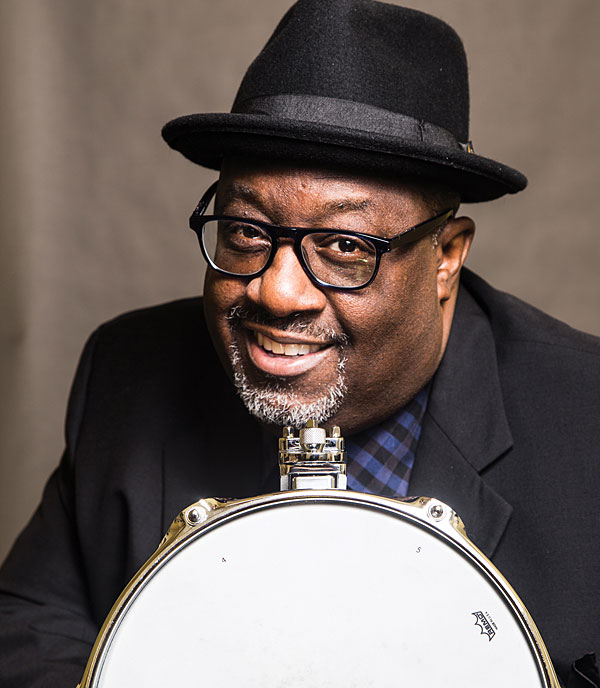
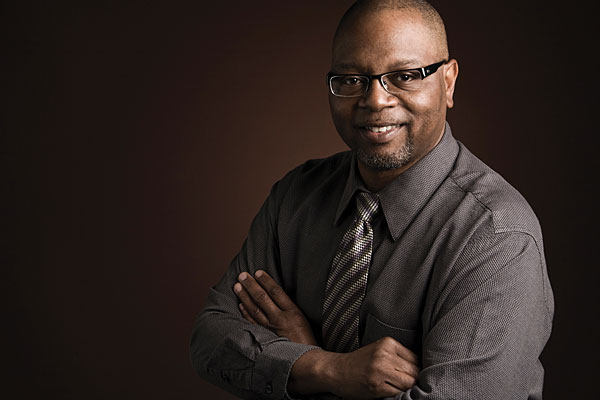
Lewis Nash and Carl Allen: They're like Grady Tate and Shelly Manne were in the '50s and '60s. You can call them to do anything, and they can do it. Lewis is one of the great brush players, along with Kenny Washington. Nash, Allen, and Washington came up with Betty Carter, where you had to be an incredible brush player to play tempos in both extremes.
Adam Nussbaum is from the same era, super well-rounded, sounded great with Michael Brecker, Dave Liebman, and James Moody.—Drummond
During the 1970s, many major jazz musicians moved to Europe. American jazz experienced a rebirth of sorts with the 1980s' "Young Lions" movement and evolved in the '90s via such creative and swinging drummers as Brian Blade and Bill Stewart. A drummer from the well of Elvin Jones, Blade led his own band, Fellowship, and recorded with Joni Mitchell before his current tenure with Wayne Shorter. Stewart's style, influenced by Roy Haynes and Elvin Jones, made its mark on several groundbreaking recordings by guitarist John Scofield, including Meant to Be, What We Do, Hand Jive, and also recordings with Pat Metheny, Larry Goldings, and Peter Bernstein.
The regal and inventive Terri Lyne Carrington; the experimental, Filipino music–exploring Susie Ibarra; Tony Williams devotee Cindy Blackman; hard bop–enthused Kenny Washington. These drummers brought jazz to greater heights beginning in the 1990s.
Such contemporary jazz drummers as Eric Harland, Antonio Sanchez, Gregory Hutchinson, Karriem Riggins, Clarence Penn, Nasheet Waits, Matt Wilson, Paal Nilssen-Love, and Gerald Cleaver reflect the tremendous diversity of jazz styles, from Riggins's classicism (as he creates hip-hop beats on the side), to Paal Nilssen-Love's thunderous free jazz provocations, and beyond to Gerald Cleaver's dense improvisations and electronic forays.
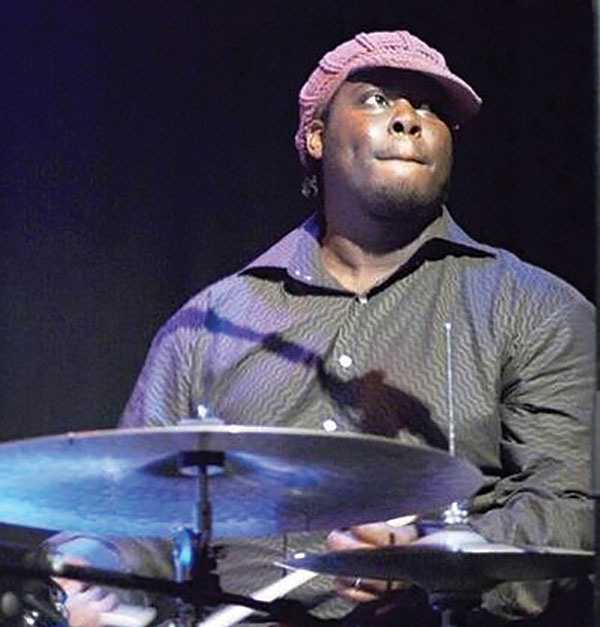
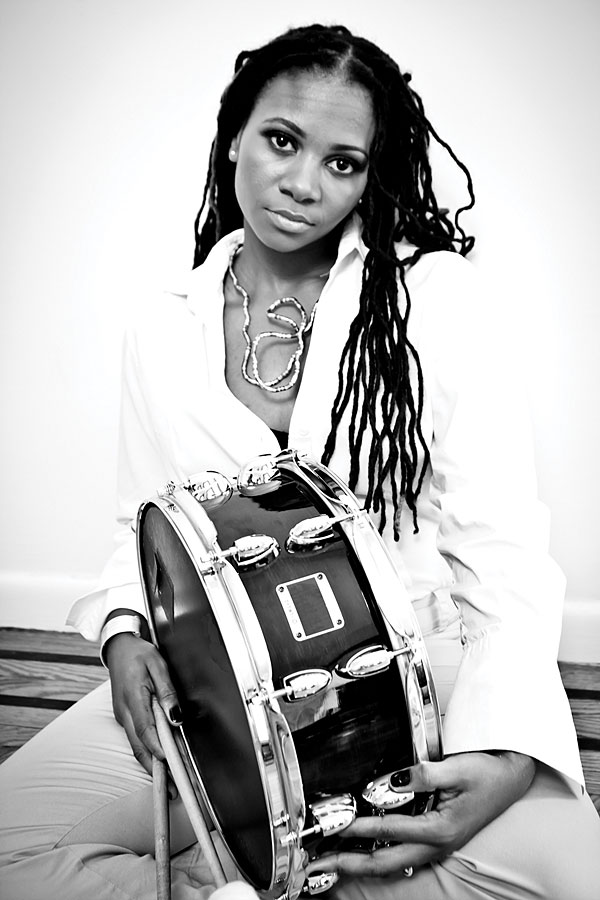
Jazz drumming's future appears healthy in the young limbs of Kush Abadey, Jonathan Barber, Johnathan Blake, Jason and Justin Brown, Obed Calvaire, Joe Dyson, Jeremy Dutton, Justin Faulkner, Tomas Fujiwara, Alvester Garnett, Katherine Gentile, Marcus Gilmore (Roy Haynes's grandson), Kenny Grohowski, Mark Guiliana, Ari Hoenig, Aaron Kimmel, Jimmy Macbride, Ulysses Owens, Dafnis Prieto, Reggie Quinerly, Rudy Royston, Kendrick Scott, Tyshawn Sorey, Kweku Sumbry, Shirazette Tinnin, and Dan Weiss.

Saying Morello "had little impact on jazz drumming as a whole" is as clueless as it is naive.
Joe was a master technician. Buddy Rich recognized Morello's technique as equal to his own.
As an innovator, he was fluently comping and soloing in 5/4 when the majority were struggling just to not get lost in it. I think that was the "big splash" you referred to with Brubeck.
There isn't a drummer on the list who doesn't admire Joe Morello.
Milford Graves?? Get real.

Bernie is a studio powerhouse, and only recently did I realize how often he was the drummer on cuts where I'd loved the drumming. He's got three albums out under his own big band name. All of them released not just as CDs, but in Blu-Ray 5.1 and 9.1 surround. The 5.1 surround made me feel like I was back in the big band I toured the midwest with 45 years ago. I took the live Blu-Ray to an audio store to hear it in 9.1, and everyone who came into that place stayed in the room listening to his band, and, his drumming, which is front and center. All of the band are studio stars, all are amazing. But his lead trombone... WOW. But, back to drummers...
Bernie is a phenomenally complex drummer. In his career, he's been great at playing to match his clients' sound and style. Hearing him in his own band is like hearing him freed. I'm a huge fan of several current jazz drummers, a few of whom are personal friends. They turned me on to Bernie.

I saw him several times with the Mahavishnu Orchestra, including on the tour with Carlos Santana. I think he played more beats per second than any drummer I've ever heard. And a couple times in every concert, someone would come from backstage with a bucket of ice cubes and water, and pour it over him. Unbelievably, his speed would triple, he'd grin at the sky (and we'd all feel cold), and then steam would rise from him for the next half hour... until his next ice bath.

Papa Jo was just amazing. IIRC, Buddy Rich mentioned him as an influence. I think they also missed Dennis Chambers. I met him briefly when taking jazz lessons in Baltimore. Nice guy and incredible drummer.

I'm sitting here listening to Daniel Barenboim playing his new Piano and reading about Drums and drummers wondering what site I drifted into ??
What, this is Stereophile and it's Mr.KM teaching the history of Jazz, hmm.
It could only be you or the wonderful Jazz Shepherd, who else thinks about this ?
You widen the scope of focus for Stereophile and we readership, I always feel like I'm learning something after reading your writings. Thank You!
Tony in Florida

has his area of expertise, I have mine. Thanks as always Tony

...enjoyed Bob Moses with the early Gary Burton Quartet with Steve Swallow and Larry Coryell. Then one night Bob was ill and Roy Haynes sat in and my mind was blown.
Also I want to give a shout out to Thurman Barker, a personal favorite.

Whenever I read a poll from Rolling Stone about the best drummer or guitar player, I'm tempted to write them and mention any number of drummers mentioned in this article. The same applies to guitarists.
While there are some pretty good rock drummers IMO most can't hold a candle to the drummers mentioned. That includes Geddy Lee. His most published accolades all seem to revolve around the number of drums in his kit. Who cares how many drums are in your kit?
I feel the same about their best guitarist polls. Think of John McLoughlan and Al Dimeola for starters.
If Rolling Stone would say best rock drummer or best rock guitarist I would be on board. However, saying "best" while restricted to rock musicians means nothing in the big picture of all music.

Geddy Lee is a bassist. I am not a Peart (or rock drummers in general) apologist but if you do not think Neil could hold a candle to some of the best jazz drummers, you really don't know anything about him (including his name).
Case in point, Peart performing at a Buddy Rich tribute (notice the size - or lack thereof - of his drumkit): https://www.youtube.com/watch?v=EDJRoN9Yoas

Peart was a prog rock drummer.

Nice to read the input from the drummers. There is one thing in the list of drummers of the future - instead of Jason Faulkner, did you mean Justin Faulkner ?
I've seen him perform as part of the Branford Marsalis Quartet, and he is very very good. Excellent really.

No problem, that happens to the best of us. You should see what I do with restaurant menus. ;>)

There is one thing in the list of drummers of the future - instead of Jason Faulkner, did you mean Justin Faulkner?
Corrected.
John Atkinson
Technical Editor, Stereophile

Outstanding! article- KM.
Keep up the strong work.


Well done, great overview and commentary.
Was a bit alarmed when you seemed to quickly jump from New Orleans to Swing but glad to see you gave props to the Chicago scene by mentioning Dave Tough and George Wettling as well as including them among the selected recordings.
Most startling oversight was not including any recordings of Papa Jo Jones. Paul Wells acknowledged his importance in the evolution of drumming styles; Jones was the driving force behind the greatest swing era rhythm section. Even if you wanted to avoid his 78 era recordings with Count Basie along w/bassist Walter Page and guitarist Freddie Green, there's plenty of wonderful Verve sessions featuring Papa Jo's artistry. Or the John Hammond produced Vanguard sessions led by Jones. [edit: Oops, never mind, my bad - wasn't expecting to find him represented in the "70's" but better late than never...]
And if you're talking about drumming in jazz, I'd say Chano Pozo deserves a mention - but yeah that's straying beyond the drum kit.

I thought we'd included Papa Jo Jones' master class, "The Drums," but it appears to have been mistakenly deleted.
Our timeline was based on history and recordings.
Chano Pozo was a percussionist, not a trap set drummer.

Hey Ken - sorry, realized my mistake after posting comment and immediately edited to note my oversight -- wasn't expecting Papa Jo to show up among "the 70's" recordings! But of course, his wonderful The Drums album was the obvious choice.
And I'd never heard of the James Lent recording before, thank you very much. Not quite sure I'd describe it as "jass" - predominantly martial rhythm to my ears -- but certainly a fascinating recording of nascent jazz drumming nonetheless.
So, how about a follow-up history on the role of the bass in jazz? (Actually, would probably need to start with a tuba...)
Cheers!

While I don't pay much attention to rock or the musicians, 9-year-old Yokoko did impress me. I wonder what she'll be doing in 10 years.
https://youtu.be/8ip47GegjeY

Each entry I read made me stop and think about that drummer's sound and where I've heard them. Nice trip along memory lane!

I'm hearing wonderfulls about the PS30 loudspeaker system that costs less than $30,000 !!
I hope you will share your opinions about this Transducer development.
Listen & Tell, pleeeeeezzzzzeeeeee
Tony in Florida

There are gazzillions of amazing drummers in the jazz art form and inevitably some will be missed in a review article. It's too bad the author didn't mention Morello. The Brubeck Quartet as a whole is generally by-passed, but a listen to their Carnegie Hall concert shows Morello on "Castilian Drums" as an extended composition that is one of the great recorded drum soloes, not about chops but akin to a suite.
With the exception of Han Bennink, this reveiw appears to be americo-centrictric. If I were to suggest one other European, it would be Paul Lovens. He is an improviser all the way but an improviser who is always "in the pocket", as sophisticated and subtle as the seemingly opposite MJQ drummer Connie Kay. Lovens also plays musical saw.
There is the refined composer Gerry Hemingway who now teaches and plays out of Switzerland: check his "Perfect World" if you can find it.
None of this suggests fault with Ken Micallef's essay. It's really good as a review. No writer can say it all, even in book length.

Missing Morello is a big mistake. Missing Hal Blaine is a HUGE MISTAKE. With over 42,000 LPs/78s/CDs/R2R, he was one of the best and most dependable. I prefer Shelly Manne but I've heard Blaine more often. It is estimated that he was the most recorded studio drummers in the history of the music industry, claiming over 35,000 sessions and 6,000 singles. His drumming is featured on 150 US top 10 hits, 40 of which went to number one. How could he NOT be mentioned for his 70 year career? One of the Wrecking Crew, of which this group was among the best in their instruments.

Don't always agree with Ken, but in the case of Joe Morello -- yeah, a fine drummer and well schooled technically but in the grand scheme of things nowhere near as influential as most of the drummers cited. My guess is that if not for the success of Brubeck's Time Out (and continued easy listening jazz audiophile warhorse) we would not be having this conversation...
As for the poster above who derided inclusion of Milford Graves while calling Ken clueless -- first, note that it was Billy Drummond who cited Graves, and unless your real name is Roy Haynes I'm thinking he's a considerably more respected commentator than you are. Second, Graves was a highly influential "pioneer" in the music and recognized as such with a Guggenheim Fellowship -- an honor very few jazz-oriented musicians achieve.

No one article or list can capture the range of influential drummers, and thank goodness that Han Bennink is mentioned. There are four others that I would like to mention because like Mr Bennink, they have unique improvisational styles.
-Paul Lovens of Europe, who powered multiple early free jazz of the '60s & '70s including the Globe Unity Orchestra.
-Louis Moholo-Noholo of South Africa from the Brotherhood of Breath and the Dedication Orchestra.
-Jim Black, originally from New York City, too may bands to mention just one.
-Gerry Hemingway, originally of New Jersey, now of Switzerland. A composer, try and find his "Perfect World" for its slam-a-dam virtuosity,
Some commentator slagged Joe Morello for not being influential; it's simply not a good idea to say nasty things about an artist the caliber of Joe Morello.
Try listening his extended solo on the Dave Brubeck Quartet at the Carnegie Hall. Be it hand-drumming, the wet finger across the skins, surprises with bombs and stop-time, the rapid accelerations that jaw-drop into sudden silence, and the logic of the composition.
Morello is one of the greats.